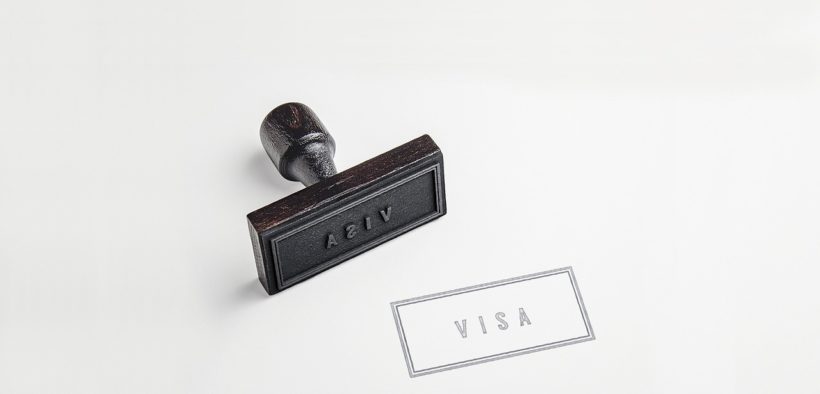Increased Documentation for VAWA and U-Visa Cases Puts Victims at Risk
Share

In April of 2019, the Trump administration changed the definition of domestic violence, which has made it harder for immigrant victims of domestic violence to receive immigration status based on VAWA or U-Visas. The new Department of Justice definition states: “The term ‘domestic violence’ includes felony or misdemeanor crimes of violence committed by a current or former spouse or intimate partner of the victim, by a person with whom the victim shares a child in common, by a person who is cohabitating with or has cohabitated with the victim as a spouse or intimate partner, by a person similarly situated to a spouse of the victim under the domestic or family violence laws of the jurisdiction receiving grant monies, or by any other person against an adult or youth victim who is protected from that person’s acts under the domestic or family violence laws of the jurisdiction.” This may seem expansive but is legally narrow compared to the previous definition.
The current definition highlights “felony or misdemeanor crimes,” but fails to include the specifics provided in the definition prior to April 2019. These categories account for abuse not covered by current U.S. laws surrounding misdemeanor or felony crimes, such as economic abuse. Economic abuse is “making dependent by maintaining total control over financial resources, withholding one’s access to money, or forbidding one’s attendance at school or employment.” Often, women who experience economic abuse tell stories of partners who pressure them to drop out of school and quit work or show-up at their work and cause a scene, so they are eventually fired.
This is particularly important because definitions dictate how cases are filed and what evidence is used. By focusing on felony and misdemeanor crimes instead of the broader subsets of domestic abuse mentioned above, the ways victims can supply evidence is limited. Without strong evidence corresponding to the federal definition of domestic violence, real victims’ cases could be dismissed.
The Violence Against Women Act was initially passed in 1994 to provide immigrant victims of domestic violence a path to legally reside in the USA independent of their abusers. While VAWA immigration statutes have been edited over the years, their purpose has remained the same: to create a path to citizenship for women harmed by American citizen abusers. VAWA traditionally receives bipartisan support. The Violence Against Women Act is important because it is often the only opportunity this subset of victims has to continue residing in the United States legally. For example, many victims are either brought over on spousal visas, temporary visas or are undocumented. In most cases, abusive spouses often threaten to deport the victims if they try to leave. When victims have children with their American spouse, they may stay for fear of their children’s safety being left with their abusive spouse should they be placed in deportation proceedings.
As a result of the changed definition, the way VAWA cases are filed has drastically changed. While the U.S. Citizen and Immigration Services (USCIS) Website has not changed its definition of what is required to file, the requests for evidence on VAWA cases have. A request for evidence is a letter, mailed by the USCIS, requesting additional materials or clarification to make a judgement on a petitioner’s request. If a petitioner does not submit a response, there is a high chance of the case being denied.
Everything claimed in a VAWA case needs to be substantiated with evidence, including claims of extreme mental cruelty and patterns of abuse. This often entails submitting screenshots of text messages, letters, and other communication to prove the abuse was in a pattern as opposed to an isolated event. Beyond that, victims also must supply information on their previous immigration cases since many victims are dependents of US citizens and are on spousal or other immigrant visas. Many victims of domestic violence flee their abusers quickly, often unable to pack their belongings and find important documents. On average, a victim will leave their abuser seven times, with each time becoming more difficult. This may make it harder for them to get copies of evidence such as their partner’s American passport, previous immigration filings, and even their own documents and financial records. American spouses usually submit immigration filings on behalf of their partner, and therefore much of the documentation will be in their name. Additionally, to prove a victim qualifies for VAWA, they need to provide evidence of their relationship to the abuser, such as a marriage certificate, birth certificates for any children they may have together, and even the abuser’s passport. These documents may be locked away by the abuser to control the victim or otherwise unavailable to the victim.
Requests for evidence are not new for the United States Citizenship and Immigration Services. Initially, these requests for evidence were used in cases where the information was unclear or missing. However, they are currently being used to challenge victims on the level of abuse they experience, whether they qualify as victims of domestic violence under federal law, and other stipulations of the VAWA statute that are vague or difficult to prove in a concrete way.
U-Visas are another critical path to citizenship in the United States for immigrants. The U-Visa is for victims or witnesses of crime in the United States, which can often apply to victims of serious abuse, including victims of domestic violence. The U-visa program was created in 2000 to incentivize witnesses and victims of violent crimes without legal immigration status to come forward. Since its inception, about 13,000 cases have been approved and about 250,000 cases have been filed, most cases lasting for three years or more. While cases are pending, individuals are eligible for deferred action and work permits to allow them to remain in the United States while they wait. Usually, approvals relate to serious crimes such as assault or, rape, and whether the petitioner played a pivotal role in the prosecution of the perpetrators of the crime. The U-Visa has seen a decrease in requests because of increasing deportation numbers for unauthorized immigrants. Victims of crimes are less likely to cooperate with police, regardless of how serious their case may be, if they are worried about being deported.
While all U-Visa applicants have struggled with the cap of 10,000 approvals every year, victims of domestic violence and related charges at the hands of a non-American are particularly affected. The U-Visa covers several charges related to domestic violence, such as abusive sexual contact, blackmail, rape, sexual assault, and stalking, in addition to domestic violence. This provides a path to citizenship for individuals who may be residing in the United States illegally and be afraid to leave their abusers because they are afraid of deportation, or in cases where their immigration status may hinge on the temporary visa of their partner, such as a TN or H-1B work permit. The issue with documentation here is like the issue discussed above with VAWA petitions: increased requests for documentation. Victims of domestic violence at the hands of a non-US citizen are much less likely to call the police on their abusers for fear of being deported, and therefore they do not have the same level of documentation that a victim of domestic violence by a US citizen has. For example, police reports of incidents of domestic violence are often used in VAWA cases to prove that the abuse was ongoing and serious. However, a victim without legal immigration status may not call the police, because it may be revealed they are residing in the country illegally. Therefore, victims do not have the evidence they need for a U-Visa application.
In conclusion, increased documentation for VAWA and U-Visa cases has made it more difficult for victims to gain immigration status and subsequently employment authorization. The change in the definition of domestic violence at the federal level has made it more arduous for victims eligible for VAWA and U-Visas to prove they have been abused. The threat of deportation and lack of protections for petitioners has reduced the number of filings for U-Visas, and VAWA and U-Visa petitioners alike have received more requests for evidence than during previous administrations. Victims already must overcome the hurdles of accessing government documents for them and their abuser and filing a series of complicated petitions, all while uprooting their life and fleeing their abuser. This would be difficult for anyone, but for immigrants, this is the fight of their life.


Want to get involved?
Connect with us! Connect with us!